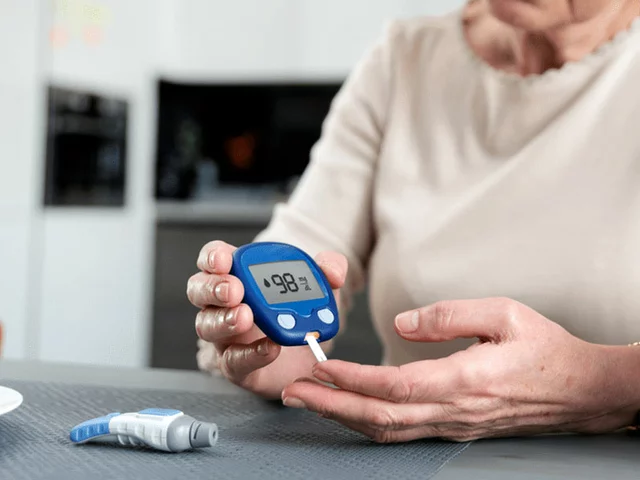Thyroid: common signs, tests, meds, and when to see a doctor
Feeling tired, gaining weight, or suddenly anxious? Those are common thyroid clues. The thyroid controls metabolism, energy, and temperature. Small gland, big effects. This page helps you spot problems, understand core tests and treatments, and points you to useful site articles that matter if you take other medicines.
First, watch for clear red flags: unexplained weight change, fatigue that sleep doesn’t fix, heart rate changes, hair loss, feeling too cold or too hot, or irregular periods. If you have several of these, ask your doctor for a thyroid check. Symptoms overlap with many conditions, so testing is the only way to know for sure.
Quick checks and tests
Doctors usually start with a blood test for TSH and free T4. High TSH often means underactive thyroid (hypothyroidism); low TSH can mean overactive thyroid (hyperthyroidism). Your clinician might add antibody tests for autoimmune causes like Hashimoto’s or Graves’ disease. If results are unclear, they may order imaging or refer you to an endocrinologist.
Don’t skip follow-up. Thyroid treatment often needs dose adjustments. If you start levothyroxine or another thyroid drug, plan repeat blood tests about 6–8 weeks after any dose change, then at longer intervals once stable.
Medications and interactions to watch
Levothyroxine is the most common treatment for underactive thyroid. Take it on an empty stomach and wait 30–60 minutes before breakfast for best absorption. Several drugs and supplements can interfere: calcium, iron, certain antacids, and some antiseizure or heart drugs. A key example from our site: amiodarone (Cordarone) can directly affect thyroid function and trigger either hypo- or hyperthyroidism. If you take complex meds, tell both your cardiologist and the doctor who manages your thyroid.
For overactive thyroid, treatment options include antithyroid drugs, radioactive iodine, or surgery depending on the cause and severity. Each option has trade-offs and monitoring needs. Your doctor will recommend the path that fits your health and lifestyle.
Thyroid health affects many areas: mood, fertility, heart rhythm, and bones. If you’re trying to conceive or have irregular periods, a thyroid check is often worth it. If you take heart or fertility medications, check for possible interactions and make sure labs are up to date.
Below are some site articles worth reading if you want deeper info or if you’re on other meds. Read the full article for details and safety tips before changing anything.
- Cordarone: Uses, Side Effects, Dosage, and Essential Safety Guide — explains how amiodarone can impact thyroid tests and symptoms.
- Clomid Not Working? Second-Line Fertility Treatments & Alternatives Explained — discusses when thyroid issues might affect fertility treatment.
- How Long Should You Take Alendronate? Unpacking Treatment Duration — bone health can tie into long-term thyroid problems; this helps with context.
Also bring past lab results and a current medication list to your first thyroid appointment soon.
If you’re worried about symptoms or medication interactions, book a lab test and talk to your provider. Thyroid problems are usually treatable, but they do need clear testing and follow-up.

Thyroid Disorders and Arrhythmias: What You Need to Know
Thyroid problems can mess with your heartbeat in ways most people don't realize. This article breaks down why your thyroid matters for your heart's rhythm, what signs to watch for, and what you can do about it. You'll get practical tips, real-life examples, and some surprising facts. If you're dealing with heart palpitations or know someone with a thyroid issue, this is stuff you need to understand. No jargon, just clear info you can actually use.
View More




